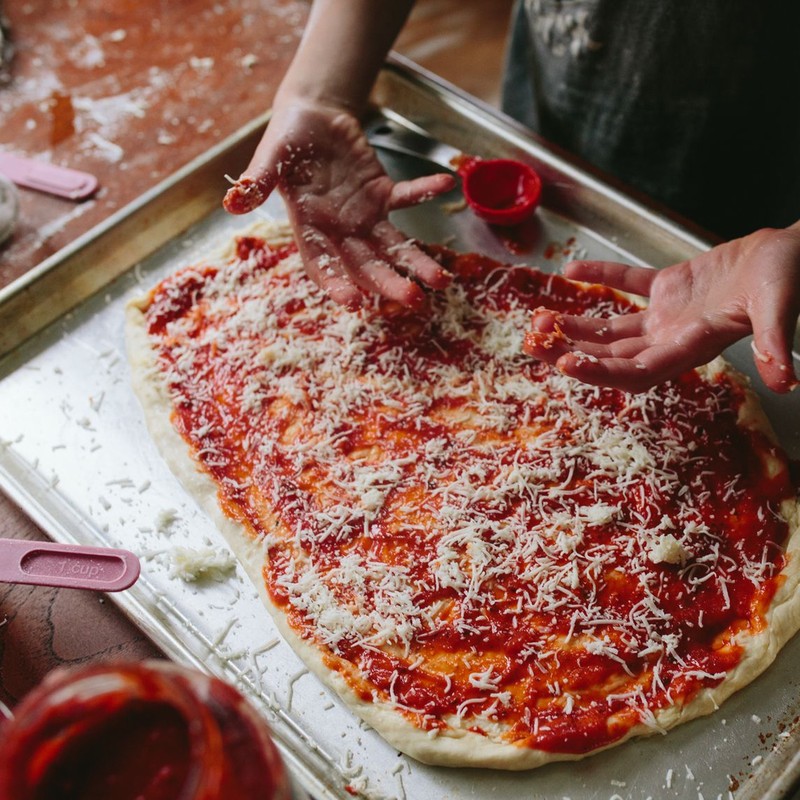How To Get Kids Into The Kitchen At Home
Was food and eating together as a family a big part of your upbringings?
“I loved food and cooking as a kid – both my parents cooked good food, very well. We would always buy fresh ingredients after school and knock up something delicious. We did this on a super-tight budget, but I think that was easier in the 90s.” – Sven-Hanson Britt, chef-founder of Oxeye
“I didn't have the romantic upbringing of learning to cook alongside my mother or grandmother. None of them were particularly good cooks, and food and eating together wasn't a big part of our upbringing. Instead, I actually learnt how to cook at catering college.” – James Knappett, chef-founder of Kitchen Table
Why do you think it's important for children to learn how to cook?
“I think we’re so out of touch in this country with our food and our relationship with it. This all starts with our kids. We need to build positive relationships with eating, cooking, calories, energy and dining out – without this we’ll go further down the black hole of eating disorders, terrible home cooking, bad budgeting, bad health choices and heart disease. Our generation needs to make the change for our children and their future.” – Sven-Hanson
“It’s important because I believe it brings together a lot of practical learning of motor skills, counting and food names – but most importantly it shows them the cause and effect of food ingredients from table to mouth.” – James
What age do you think is realistic to get children into the kitchen?
“I have a three-year-old son Rex, and he absolutely loves cooking. He’s been cooking and baking for at least 18 months with my wife Kae and me. Even if he’s just smooshing some butter or flinging flour, it all makes an impact when they see the final product come out the oven. The sense of ownership, the sense of accomplishment, the pride. If you want a child that values food, you can’t start cooking with them too young!” – Sven-Hanson
“As soon as they sit up and grab something. We’ve had our daughter Shea cooking with us since she was six months old. She would sit in her highchair and mash up bananas and watch my wife Sandia make banana bread.” – James

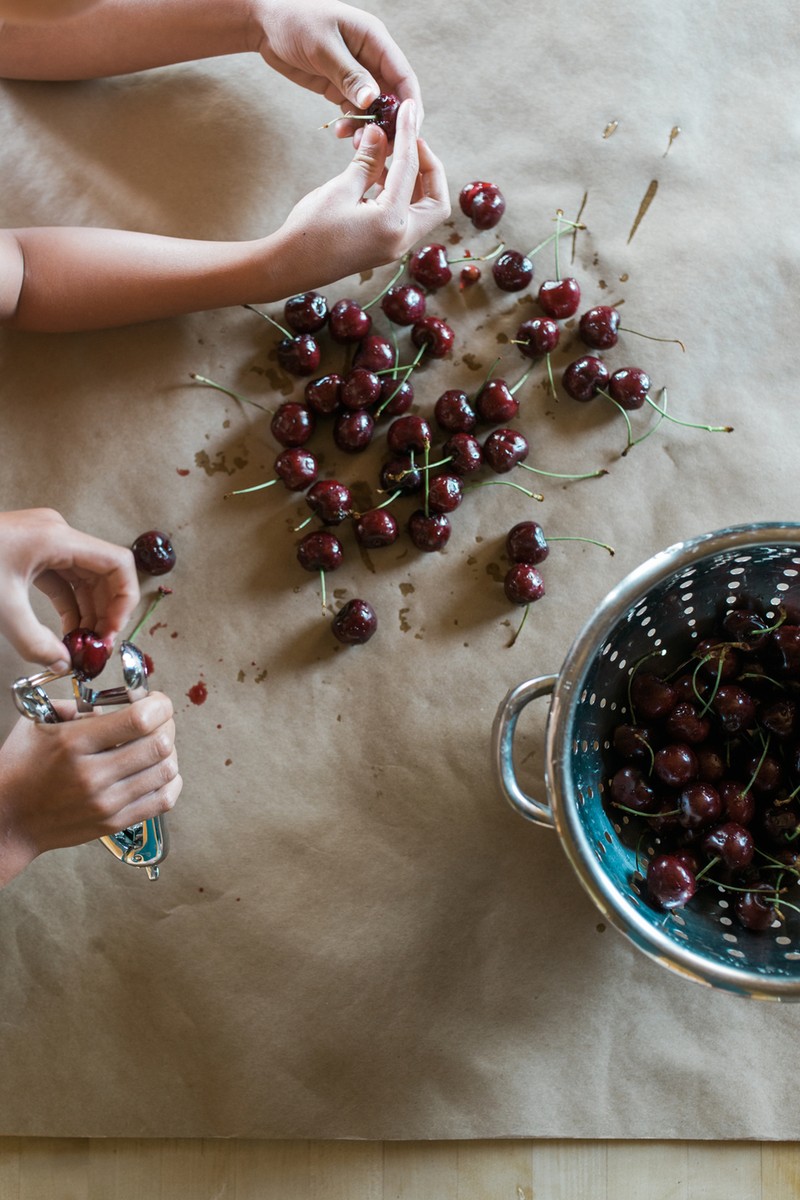
Are there any hard-and-fast dos and don’ts?
“We have quite strict rules in the kitchen when it comes to safety (hot and sharp aren’t really a toddler’s best friend), and obviously that’s important. But other than that, we just go with the flow each time. The amount of times Rex has eaten more raw waffle mix than actual cooked waffles is numerous, but I tell you what, he knows what flour is, how to beat butter, how to crack an egg without getting shell in the mix and why he shouldn’t eat too much sugar. Do have fun, that’s what food is all about. Don’t do it if you’re worried about the cleaning!” – Sven-Hanson
“Mess is inevitable – live with that first, then it won't be as stressful and it will be more enjoyable. Also, when they are younger, it is easier to do all the weighing out first and the ‘mise en place’, so they can enjoy pouring things into pots and pans and just stirring. Don't give them a hard time when they spill measured out milk and pour half the weighed-out sugar on the floor. Always let them taste things along the way, even if it's raw eggs. And make sure to get a kitchen helper chair so your child can be at the right safe level with you.” – James
Do you try to teach them specific skills?
“Skills don’t matter – they can be learned later. It’s all about building a positive relationship. How do you make a roux? Who cares? I can teach a chimpanzee how to do that in half an hour. Why do you want to make a roux in the first place? That’s the important thing! Teach a love of food, travel, culture, cooking, inclusiveness. Teach fun, bond over the mess and the trials and tribulations. Teach them about wine, about consumption, about calories and limits. Teach them about hunger, about starvation, about the pure expense of ingredients, be with them when they experience their first oyster, their first rare steak, the best English asparagus, be with them and share their pure unbridled excitement when they pick strawberries at a PYO, share a midnight kebab after a gig, teach yourself how to cook a proper carbonara and watch them eat it. Do all these things and you will never need to teach them how to make a roux. They will do that for themselves.” – Sven-Hanson
“Every child is different and I can only speak based on our daughter. From six months to one year, they could learn to mash, stir and pour. Aged one to two years, they could learn to chop (with a children's safe knife). From two to three, they could learn to measure ingredients and crack eggs. Three years onwards, we allowed Shea to join in on everything with supervision, except deep frying. She now helps me make sushi and is on the stove next to me stir frying. I'm not sure at what age we can expect her to be able to completely cook on her own…” – James
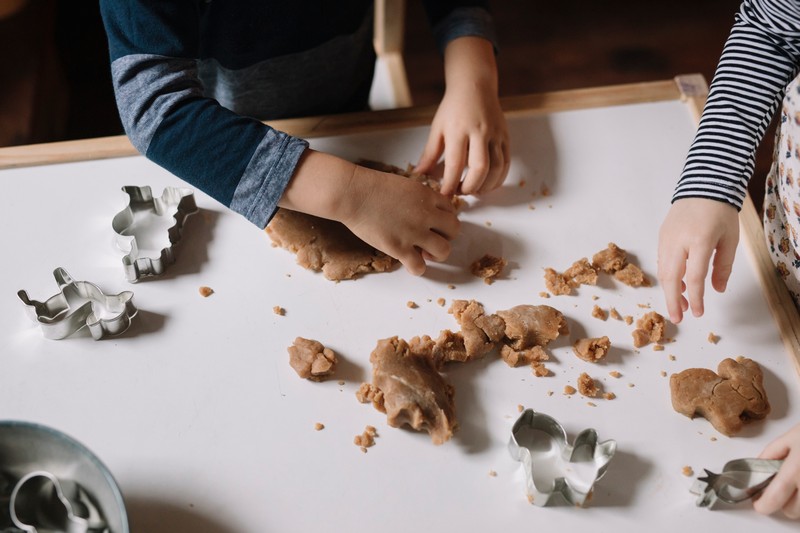
When would you let a child start to learn knife skills?
“Rex already has a kid’s knife (with no pointy bits). We let him chop some easy things on his own – strawberries, courgette, tomatoes etc. We also let him help us use a sharp knife so he understands why it’s dangerous. We’ve done this since he was two.” – Sven-Hanson
“At six months we gave our daughter a small wooden toy food cutting set and she learnt to cut wooden toys in half with a wooden knife. At age one, we gave her a toddler’s knife and, with supervision, we taught her how to cut cucumbers for her own snack.” – James
How do you involve your children in meal planning and food shopping?
“Now this is a challenge. I think if we let ours get involved, it would be pasta every mealtime!” – Sven-Hanson
“We constantly talk about what we're having for dinner or what they would like to eat. When I pick them up from nursery, I always tell them what we're having for dinner and ask if they would like to help me cook it. During food shopping, we’re always asking them to name ingredients, letting them touch and smell things they've never seen.” – James
How do you react if your child produces something genuinely inedible?
“I once had to eat a communally made, preschool cupcake decorated by my son. It had my name on it, FFS, I couldn’t say no. I picked him up from pre-school. Mid-January. There were snotty kids everywhere. Sneezes in every corner. Rex was covered in flour, head to toe. They were all so proud of what they made. One of the other little grimy snivellers even came up and told me that, while he dribbled on the floor and my shoe. I ate every last bit and Rex was over the moon.” – Sven-Hanson
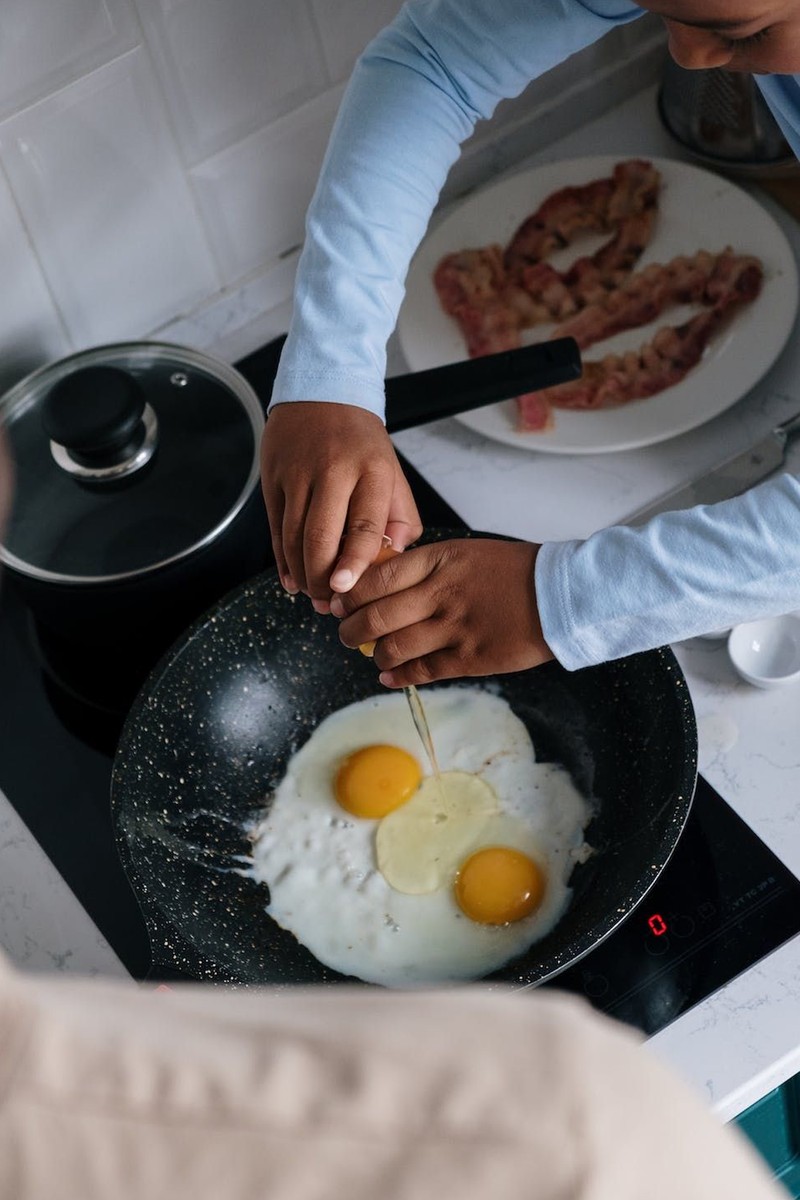
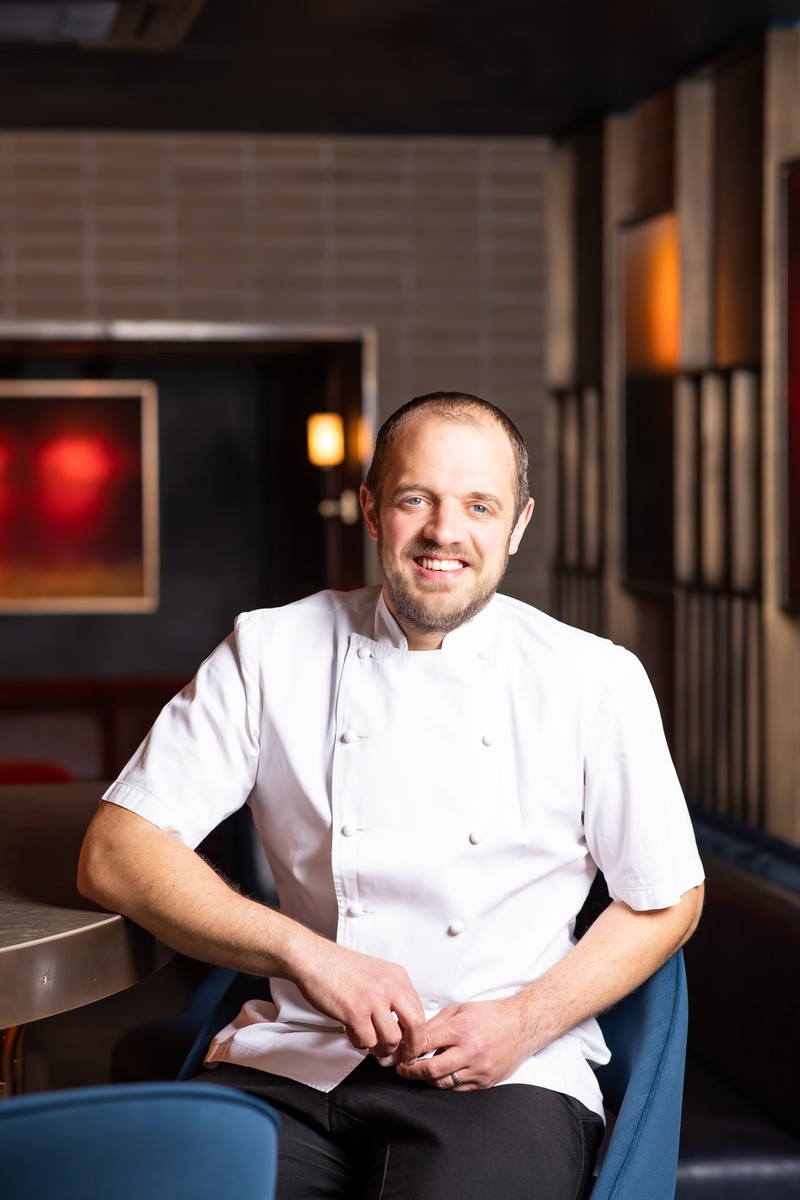
What are some ideal beginner recipe ideas for children to learn?
“Cakes, anything with flour, anything instantly gratifying, and anything that doesn’t involve frying in lots of oil.” – Sven-Hanson
“I’d try simple baking recipes like banana bread, pancakes, scrambled eggs, and stir fries.” – James
Have you got any tips for enticing reluctant older children into the home kitchen?
“Take them to a restaurant, treat them and show them just how wonderful food and cooking can be! The passion may be passed on…” – Sven-Hanson
“I would say always offer to teach and involve them but never force them. Food needs to be enjoyable from beginning to end after all.” – James
Finally, how important do you think it is for dads to be in the kitchen at home?
“My dad did a lot of cooking at home. I think, especially with young boys, you look up to your dad and want to emulate him. So an easy way to grow excitement and passion for food and cooking is to just do it yourself. Even if it’s just a couple of fried eggs or a curry, the act of creating something and feeding your family is an important one, and builds great connection.” – Sven-Hanson
“It's such a great bonding experience. It's making something together that can be enjoyed and nourishing. There's always an immediate pride when a dish the kids help make hits the table at dinnertime. Even if it’s been made with things they say they don't eat, they (almost) always eat it when they've made it themselves.” – James
To see what James and Sven-Hanson do in their pro kitchens, check out OxeyeRestaurant.co.uk & KitchenTableLondon.com
DISCLAIMER: We endeavour to always credit the correct original source of every image we use. If you think a credit may be incorrect, please contact us at [email protected].
